
David Scott3
Head of Division, School of Business and Creative Industries, University of the West of Scotland
My expertise is based on my practice as a widely pubished songwriter, performer, broadcaster and commentator as well as through my work in originating academic programmes of study, developing knowledge exchange projects as well as through practice-based research. My creative practice output includes many published albums, songs and high-profile performances, my broadcasting has concentrated on Scottish music culture with six full series of radio documentaries on Scottish albums broadcast on BBC Radio Scotland and BBC 6 Music; some of this work has been adapted and developed for academic presentations within conferences and in postgraduate teaching. I have also adapted creative practice in this way by using my community music practice as the basis for some recent practice-based-research around mining and traditional song narrative (Pits, Ponies, People & Stories). In summary my research expertise resides primarily in the following areas:
Songwriting
Popular Music History
Scottish Music Culture
Community and Participatory Arts
Current research activities
My recent activities have centred around practice-based research undertaken as part of South Lanarkshire Council's Pits, Ponies, People & Stories heritage-based project. My sound piece Where Is God, which considers contemporary narratives around the Syrian refugee crisis through the lens of the famous traditional song The Blantyre Explosion, was presented at CCA Glasgow and Tokyo Metropolitan University as part of the Azimuth project in 2016.
I developed one of my BBC Classic Scottish Albums programmes - Glasvegas - for a paper at the 2015 Singing Storytellers Symposium at Cape Breton University titled Stabbed! Towards a Musical Tartan Noir and I continue to develope research ideas around the list of programmes made.
More recently I have completed a book chapter in collaboration with Dr Jo Collinson-Scott for Bloomsbury Academic and their Guide To The Singer Songwriter on sustaining careers in the digital age. The book will be published later in 2017.
I am currently bringing some research around Scottish music culture together with my own music output for a practice-based PhD proposal to commence later 2017
Less ![]()
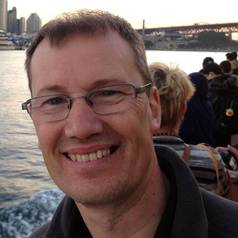
David Sear
Professor in Physical Geography, University of Southampton
David is a Professor of Physical Geography at the University of Southampton. He has over 28 years research experience in the areas of sediment transport and siltation in rivers, lakes and floodplains as well as flood risk management and river restoration. He has led projects looking at the impacts of agriculture on river ecology, impacts of sediments on salmon spawning habitats, the effectiveness of river maintenance including dredging, and the impacts of exterme flooding on river channels and infrastructure. David also works in the coastal zone and has led a major survey of the largest lost medieval port in the world at Dunwich (Britains Atlantis, www.dunwich.org.uk) where he has examined long term drivers of cliff eosion and coastal change. Most recently, David has focussed his research on the use of sediment archives in lakes for reconstructing the frequency and magnitude of natural hazards including flood records (e.g. following storm Desmond in 2015), Tropical Cyclones (e.g. Pam in Vanuatu in 2015), coastal storms (from marsh sediments). He leads a research programme in the tropical South Pacific where he uses lake sediments to reconstruct changes in El-Nino (ENSO) and the timing of arrival and ecosystem impacts of the first humans. David advises Defra, Environment Agency, Natural England and RGS among other organisations on River restoration, Natural Flood Managment and channel dynamics. He has worked all over the world and his research has been published in leading Journals. His work has featured in a wide range of media outlets including six TV documentaries.
Less ![]()
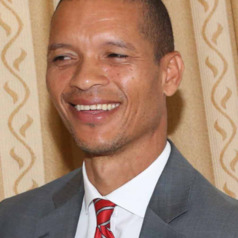
David Sebudubudu
Professor, University of Botswana
David Sebudubudu is a professor of political science in the Department of Political and Administrative Studies (PAS), Faculty of Social Sciences, University of Botswana. Sebudubudu holds a PhD from the University of Leeds, England.
Less ![]()

David Shepherd
Professor in Hebrew Bible/Old Testament, Trinity College Dublin
David Shepherd is Professor in Hebrew Bible/Old Testament in Trinity’s School of Religion, Theology, and Peace Studies, a member of its Loyola Institute and was the founding director of the Trinity Centre for Biblical Studies from 2016 to 2019.
He is co-author of Ezra & Nehemiah (Eerdmans, 2018), Bertolt Brecht and the David Fragments (Bloomsbury Academic, 2020) and author of Targum and Translation (Brill, 2004), The Bible on Silent Film (CUP, 2013), and most recently, King David, Innocent Blood, and Bloodguilt (OUP, 2023). His current research on light variation and religious imagery in stained glass is funded by Templeton. After serving in various roles at Trinity, Prof Shepherd was appointed as Trinity’s Senior Lecturer and Dean of Undergraduate Studies in 2021.
Less ![]()

David Singh1
Indigenist Health Humanities Academic Director, Queensland University of Technology
Less ![]()

David Small
Senior lecturer, Above the Bar School of Educational Studies and Leadership, University of Canterbury
After completing a BA in Education and Political Science and working for several years for an aid and development organisation, I completed a PhD in Education on the Politics of Colonial Education in New Caledonia. I have spent my academic career teaching and researching at the University of Canterbury mostly at the intersection of Education and Politics including critical analysis of the neoliberal model of education and the role of education in the development of and challenges to the colonisation of New Zealand. In 2010 I also completed an LlB and have held a lawyer's practising certificate ever since. I also teach a postgrad course on Education Law and have researched and published in the area of law, rights and the war on terror. I have retained an interest in New Caledonia throughout having first visited there in 1983 after attending the Fourth Nuclear Free and Independent Pacific Conference in Vanuatu. I spent December 2023 in New Caledonia on the island of Ouvéa where the 1988 massacre of 19 Kanak activists occurred and in Nouméa where I attended meetings of the CCAT and the Mouvement des Océaniens Indépendantistes.
Less ![]()
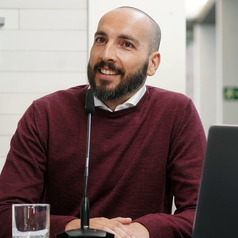
David Soto-Oñate
Investigador en Economía Ecológica y Economía Política, Universidade de Vigo
Less ![]()

David Spencer
My general interests lie in the economics and political economy of work, employment relations / work studies, the history of economic thought, and political economy. My approach to research and teaching encompasses ideas and insights from different disciplines and I retain an interest in promoting forms of interdisciplinary research and teaching. Current research focuses on a number of interconnected areas, including the conceptualisation of work, the changing boundaries between labour economics and other areas of labour research, the study of the quality of work and of worker well-being, and the process of financialisation especially as the latter bears on work and labor.
Less ![]()

David Ssekamatte
Lecturer in the Department of Management, Uganda Management Institute
I am currently a consultant and lecturer in the Department of Management at the Uganda Management Institute. Previously, I worked with various education service and health related development organizations as a program manager and monitoring and evaluation manager. I have more than 15 years of experience in program management, monitoring and evaluation, research and learning, and management consultancy in education and health sectors, as well as youth and children related programs. My research interests are mainly in the areas of sustainability and climate change education, internationalization of higher education in the African context, higher education management, as well as monitoring and evaluation. I have attended various short-term training programs within and outside Uganda on competence-based training and assessment, results-based monitoring and evaluation, outcome and impact evaluation, research methodologies and research management, capacity building and pedagogical skills for lecturers and research supervisors, training of trainers and project planning and management. I hold an MA in economics from the University of Lucknow in India, and a PhD in education and social sciences from Carl von Ossietzky University of Oldenburg, Germany.
Less ![]()

David Stack
Professor of history, University of Reading
“The philosophers have only interpreted the world in various ways; the point, however, is to change it.” Thesis Eleven of Karl Marx’s Theses on Feuerbach (1845) is both a call to action and a demand that we situate philosophical thinking about the world within history. This sums up my interests as an intellectual historian.
My research and teaching explore the ideas, concepts, and ways of thinking about the world that dominated nineteenth and early twentieth century thought, and situates these ideas, concepts, and ways of thinking within their historical context.
My work ranges across both the history of the left, especially early nineteenth century radicalism, Chartism, and the life and writings of John Stuart Mill, and the history of science, especially phrenology, Darwinism, and eugenics. In each of these areas I seek to understand how ideas and concepts developed within the context of their own time - radicalism in dialogue with contemporary conservatism, Darwinism in interaction with capitalism and imperialism - in order to understand them historically.
This is a relevant and urgent activity because ideas and concepts formed in very different historical circumstances continue to frame our thinking today. History is the present interrogating the past in order to shape the future. The first step is to understand the past.
Less ![]()

David Stebenne
Professor David Stebenne teaches American legal history in the Moritz College of Law and modern U.S. political history in The Ohio State University History Department.
He graduated from Yale magna cum laude in 1982 and then earned a J.D. and Ph.D. in history from Columbia University through a joint-degree program that produces legal historians. He is a member of the Maryland Bar who moved directly into teaching, first at Yale (1991-1993) and then Ohio State (since 1993).
Professor Stebenne’s dissertation on the life and work of former labor lawyer and U.S. Supreme Court Justice Arthur J. Goldberg was published by Oxford University Press in 1996 under the title Arthur J. Goldberg: New Deal Liberal. While doing research on that project, Professor Stebenne worked with Goldberg directly during the last nine years of his life.
His second book was a study of the life and work of Arthur Larson, the legal academic who wrote the leading treatise on workers’ compensation law and also held three high-ranking posts in the administration of Dwight D. Eisenhower. Indiana University Press published this book under the title Modern Republican: Arthur Larson and the Eisenhower Years in 2006.
Professor Stebenne’s third book (co-authored with Joseph Mitchell) was a history of Columbia, Md., the planned suburban “new town” created by Baltimore lawyer and real estate developer James Rouse. This book was published by The History Press under the title New City Upon A Hill: A History of Columbia, Maryland in 2007.
He is at work on his fourth book, which is a political and legal history of the U.S. from the 1930s through the 1960s. The book’s working title is An Era of Moderation: The United States, 1933-1968.
Professor Stebenne also has written many articles, essays, and book reviews for a variety of legal and historical publications. Among the most recent is one titled “Who Really Won the Election of 1960?” which was first published on the Election Law @ Moritz website, and then on the History News Network (HNN) website and in print in the Columbus Bar Lawyers Quarterly.
He is interested in the history of American elections and in contemporary national politics. He serves the Election Law @ Moritz team as its “elections historian.” He comments regularly on national politics for both local and national media.
Professor Stebenne co-chaired (along with law professor Edward B. Foley and former political science professor Paul Beck) the Democracy Studies Speakers Series during 2012 and 2013. He served on the editorial board that oversaw the writing of a history of the Ohio General Assembly by historian David Gold. It was published in 2009 by Ohio University Press under the title Democracy in Session: A History of the Ohio General Assembly. Professor Stebenne serves as the chair of the committee overseeing the Ohio General Assembly Oral History Project, which is interviewing present and former Ohio lawmakers. He also is assisting the Ohio Supreme Court in its efforts to create an Ohio Supreme Court Historical Society.
Professor Stebenne is serving a three-year term on the Littleton-Griswold Prize Committee of the American Historical Association. The prize is awarded annually to author of the best book on American legal history.
He has won awards for his research, teaching and service.
Less ![]()

David Stevenson
Assistant Professor in the School of Film, Trinity College Dublin
David Stevenson is an Assistant Professor at Trinity College Dublin in the School of Film. His research interests focus on theorizing Japanese digital cultures and the application of interdisciplinary methodology and close reading to video games and animation. Recently, David has been examining the relationship between game narratives, their aesthetics, and the industrial efforts that produce them.
Less ![]()

David Stupples
Professor of Electrical and Electronic Engineering and Director of Electronic Warfare Research, City, University of London
Professor David Stupples specialises in research and development of radar systems and electronic warfare. For a number of years he undertook research in this area at the Royal Signals and Radar Establishment (RSRE) at Malvern in the UK followed by surveillance and intelligence systems research for the UK Government. He then spent three years developing surveillance systems and satellites for Hughes Aircraft Corporation in the US. In his early career, Dr David Stupples was employed in radar and EW by the Royal Air Force. Later, he was a senior partner with PA Consulting Group where he was responsible for the company's consultancy work in surveillance technology.
At City University London his research is now firmly focused in electronic warfare and radar counter measures. He is working with industry on low probability of intercept radars under the ELINT banner. David Stupples is an active member of the Association of Old Crows.
Less ![]()

David Sturrock
Senior Research Economist, Institute for Fiscal Studies
David joined the IFS in 2016, working in the Pensions and Public Finance sector. His current research examines household wealth, the intergenerational transmission of inequailty, and the impact of longer working lives on health. Previously, David was an economist at HM Treasury, working on fiscal policy, analysis of Scottish independence, and strategy for the 2015 Spending Review.
Less ![]()

David Suber
Doctoral research fellow, Jill Dando Institute of Security and Crime Science, UCL
Conducting research on people smuggling and border policing at the Jill Dando Institute of Crime Science, UCL. Previously working on international migration and antiquities trafficking in conflict zones. Award-winning freelance investigative journalist and documentarist. Creative editor and co-director of the journalist collective Brush&Bow C.I.C.
Less ![]()

David Tang
Research assistant, AustLit, The University of Queensland
I'm currently a student at the University of Queensland, studying the Bachelor of Communications with a major in Public Relations. I have worked with AustLit over a period of 4 months, and helped contribute to the AI in the Archive research project by creating a bibliography , as well as doing research and some designs.
Less ![]()
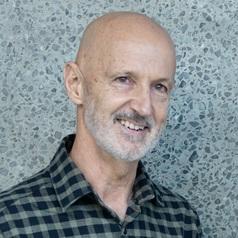
David Tappin
Associate Professor, School of Management, Te Kunenga ki Pūrehuroa – Massey University
I am an academic at Massey University and co-director of the Healthy Work Group. I have a background in industry-based research & consultancy in NZ. My research interests are the nature and quality of work and its effects on health, sustainability and performance.
Less ![]()

David Thornalley
Professor of Ocean and Climate Science, UCL
I am an ocean and climate scientist, specializing in paleoceanography. The central focus of my research is investigating the ocean and its role in the climate system, to allow us to improve predictions of future climate change and take the necessary steps to protect our environment. I am interested in understanding the causes, mechanisms and impacts of climate change on decadal to millennial timescales. I use a range of sedimentary and geochemical proxies in marine sediment cores, with a particular emphasis on reconstructing recent changes in the circulation of the North Atlantic.
Less ![]()
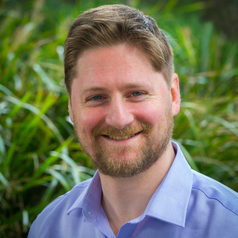
David Tittersor
Research Fellow, Alfred Deakin Institute for Citizenship and Globalisation, Deakin University
I am the Research Fellow to the UNESCO Chair for comparative research on cultural diversity and social justice, within the Alfred Deakin Institute for Citizenship and Globalisation, Deakin University. I wrote my Doctoral dissertation on the Turkish Muslim transnational organisation known as the Gülen Movement, which was published by Oxford University Press entitled 'The House of Service: The Gülen Movement and Islam's Third Way.' My research interests are Muslim movements, Turkish politics and society, religion and development, and the Middle East.
Less ![]()

David Todd
Associate Professor, Neonatology, ANU Medical School, Australian National University
David has worked in Neonatal Medicine for 44 years initially as a medical scientist obtaining a MSc and PhD from Sydney University. Following these qualifications, he obtained a medical degree at Sydney University in 1998. Since then, he has continued to work within the field of Paediatrics and Neonatal Medicine. Currently, he works in the Neonatal Department at the Centenary Hospital for Women and Children, Canberra. He has a university appointment of Associate Professor at the Australian National University (ANU) in the School of Medicine and Psychology. His main focus of research had been Chronic Lung Disease and Retinopathy of Prematurity in preterm babies, but he now also has a major interest in Tongue Ties in babies that can affect breastfeeding. Since 2006, David has established and is the lead clinician at the Tongue Tie Clinic at the Centenary Hospital.
Less ![]()

David Tombs
Howard Paterson Chair of Theology and Public Issues, University of Otago
David Tombs is a lay Anglican theologian and the Howard Paterson Chair of Theology and Public Issues, at the University of Otago, Aotearoa New Zealand. He has a longstanding interest in contextual and liberation theologies and their application to social issues. He is originally from the United Kingdom and previously worked at the University of Roehampton in London (1992-2001), and then in Belfast, Northern Ireland, for the Irish School of Ecumenics, Trinity College Dublin (2001-2014).
Less ![]()

David Tremblay
Chercheur postdoctoral, Université du Québec à Chicoutimi (UQAC)
Je suis docteur en sciences de l'environnement. Je travaille comme chercheur postdoctoral et chargé de cours à l'Université du Québec à Chicoutimi. Mon travail porte sur la mise en œuvre du développement durable. Je travaille sur les outils de mise en œuvre, la gouvernance et l'engagement des parties prenantes dans les questions de durabilité et de transition. Au cours des douze dernières années, j'ai accompagné diverses organisations aux niveaux local et international sur des enjeux de développement durable, en outre dans l’élaboration de plan de développement durable. Mes plus notables accompagnements incluent la Ville de Québec, les Producteurs de lait du Québec, la Coopérative de transport maritime et aérien et les autorités portuaires canadiennes. En partenariat avec l'Organisation internationale de la Francophonie, j'ai participé à des ateliers de renforcement des capacités dans plusieurs pays de l’Afrique francophone, en Europe, dans les Caraïbes et aux États-Unis.
Less ![]()
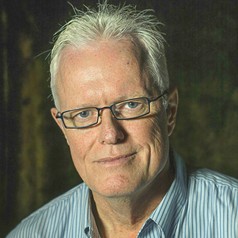
David Tuffley
Dr. David Tuffley is a Senior Lecturer in Applied Ethics and SocioTechnical Studies at Griffith University’s School of ICT. A regular contributor to mainstream media on the social impact of technology, David is a recognized expert in his field. Before academia David worked as an IT Consultant in Australia and the United Kingdom, a role he continues to perform when not educating the next generation of IT professionals. David is an engaging science communicator of many years experience.
David came to the world of technology from the Humanities, having studied Psychology, Anthropology, Classical Rhetoric and English literature at the University of Queensland. David is an accomplished professional speaker and forum moderator.
David's formal qualifications include PhD (Software Engineering), Master of Philosophy (Information Systems), Grad Cert in Higher Education (all from Griffith University), Bachelor of Arts majoring in Psychology, English Literature, Anthropology (University of Queensland). David also completed an Associate Diploma in Health Surveying at the Queensland Institute of Technology (now QUT), working as a Health Surveyor in Ayr and Charleville (1978-1981).
Less ![]()
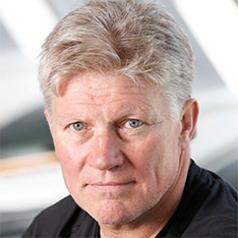
David Turner
Senior Lecturer in Sports Coaching, Anglia Ruskin University
I have a degree in Movement Studies (with Qualified Teacher Status), a Masters in Research (UK Sprint Coaches and Black/White Stereotypes), and an Educational Doctorate (Coaching Expertise Development). I have a number of coaching and fitness instruction awards, including a UEFA B football coaching licence. I am a Senior Fellow of the Higher Education Academy.
My research interests are around the development of expertise, and learning journeys, in Sports Coaching, and beyond.
Less ![]()

David Turns
Senior Lecturer in International Law, Cranfield University
Dr Turns graduated from the London School of Economics and Political Science with an Upper Second Class LLB (Honours) degree in 1990 and an LLM in 1992, and has been a non-practising barrister and Member of the Honourable Society of the Inner Temple since 1992. From 1990 to 1994 he taught Public International Law as a Part-time Lecturer at the London School of Economics, and was a full Lecturer in Law at the University of Liverpool from 1994 to 2007.
He has specialised in the education and training of military legal advisers since 1995 and has also delivered courses on international law for humanitarian aid workers, military officers (non-legal, including senior commanders) and civil servants, in the UK and many other countries around the world.
Dr Turns was a Visiting Professor at the Institute of International Law and International Relations, University of Vienna, in 2002, and is a Member of the International Institute of Humanitarian Law (San Remo, Italy), the Board of Directors of the International Society for Military Law & the Law of War, and the Advisory Board of the Hungarian Yearbook of International Law & European Law.
Research opportunities
International Humanitarian Law (the Law of Armed Conflict) (jus in bello)
Legality of the Use of Force by States (jus ad bellum)
International Criminal Law
Current activities
Dr Turns' current scholarly interests are:
the historical and contemporary evolution of warfare and its effect on the development and interpretation of the laws of war;
Rules of Engagement as a tool for the governance of armed and security forces;
the doctrine of armed reprisals;
the status and treatment of prisoners of war.
Less ![]()
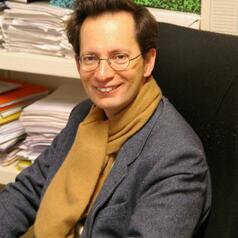

David Verhoeven
Assistant Professor of Vet Microbiology and Preventive Medicine, Iowa State University
Researcher investigating differences between infants and adults immunologically with respect to why the young often get more sick with viruses. Investigating new mRNA vaccines and protein vaccines for diseases that infect humans and ag animals especially focused on coronaviruses, influenza (seasonal and high path), RSV, and parainfluenza. Investigating basic nucleic acid structures in RSV and competition between Sars-CoV-2 and RSV for infection in the same individuals.
Less ![]()
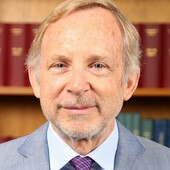

David Wachenfeld
Research Program Director- Reef Ecology and Monitoring, Australian Institute of Marine Science
Less ![]()

David Waldron
Senior Lecturer in History, Federation University Australia
Dr Waldron is a historian working in the School of Education and Arts. Dr David Waldron joined Federation University, then the University of Ballarat, in 1999 whilst engaged in post graduate study.
In his time at Federation University, Dr Waldron has developed a passion for community historical engagement, regularly supporting, writing and developing community heritage events, support local theatre and online productions in historical areas of research. He is the researcher and co-writer of the Goldfields History pod cast series Tales from Rat City, which won the National Trust of Australia (Victoria) People’s Choice award in 2019 and recently completed the Lucas Girls and the Avenue of Honour Audio Tours commemorating the lives of the men and women who served in the First World War from Ballarat and district. More recently Dr Waldron has coordinated the digital mapping of the Yarrowee in collaboration with the Wadawurrung Traditional Owners Aboriginal Corporation and the City of Ballarat. Dr Waldron is also one of the primary contributors and architects of the annual Ballarat Heritage Festival and contributes to the Maldon Gothic Festival and the Melbourne Magic Festival with his colleague Dr Jo Clyne. He is the author of "Sign of the Witch: Modernity and the Pagan Revival, "Shock! the Black Dog of Bungay: A Case Study in Local Folklore", "Goldfields and the Gothic" and "Aradale: the Making of a Haunted Asylum". He is also a TEDx speaker discussing the legacy of haunting and ghost stories in response to traumatic events in a community.
David is a folklorist and historian with a particular focus on the development of urban legends and popular folklore as a response to traumatic community experiences. He is interested in the intersection of folklore, popular culture and the creation of shared mythology and story-telling. He is also interested in tracing the development of folklore attached to historic and sacred sites and the development of urban legends in relation to social, cultural and political crisis in communities. He has a strong interest in new religious movements and the concomitant development of new mythologies and belief systems.
Research interests:
New Religious movements
Folklore Studies and community identity
The intersection of community folklore and popular culture/urban legends
Active learning models in Historical Education
Place, Culture and Identity formation in small, communities
Ghost Stories and Urban legends as a cultural response to shared trauma.
Less ![]()

David Waller
Senior Lecturer, School of Marketing, University of Technology Sydney
David Waller is a Senior Lecturer in the School of Marketing, University of Technology, Sydney. David has over 20 years experience teaching marketing subjects at several universities, including University of Newcastle, University of New South Wales and Charles Sturt University-Riverina. His research has included projects on marketing communications, advertising agency-client relationships; controversial advertising; international advertising; marketing ethics; and marketing education.
Less ![]()

David Wells
Honorary Research Associate at the Cyber Threats Research Centre, Swansea University
David Wells is an independent global security consultant worked with national, regional and international governments on a range of emerging terrorism and counter-terrorism challenges, including terrorist exploitation of technology, far-right violent extremism and the intersection between climate change and terrorism. He is also an Honorary Research Associate at Swansea University’s Cyber Threat’s Research Centre (CYTREC), and a non-Resident Scholar at the Middle East Institute.
Previously, he spent five years as Head of Research and Analysis at the UN Counter-Terrorism Executive Directorate in New York, managing the team responsible for monitoring terrorism and geopolitical trends for the Counter-Terrorism Committee of the Security Council. David began his career coordinating investigations into international terrorist networks for GCHQ, the UK’s largest intelligence agency, has worked for multiple agencies in the Australian intelligence community, and has written for and collaborated with the leading research and academic institutions focused on counter-terrorism and CVE.
Less ![]()
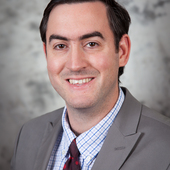
David Wheatley
Assistant Professor in Operations & Decision Sciences, Wilfrid Laurier University
Less ![]()
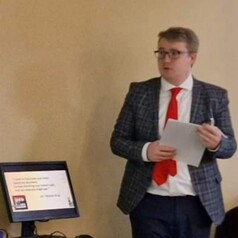
David Wilders
PhD Candidate, School of English, Dublin City University
David Wilders is a PhD candidate, supported by a School of English Research Scholarship, at Dublin City University. His research is focused on representations of disability within Irish literature and primarily in life writing. He is also interested in how disability is portrayed in theatre - musical theatre especially. His work has previously been published on the RTE Brainstorm website.
Less ![]()

David Wiltshire
Professor of Theoretical Physics, University of Canterbury
David L Wiltshire is a professor of theoretical physics at the University of Canterbury, Christchurch, New Zealand. His research interests are in general relativity, cosmology and quantum gravity.
He began his career working on higher-dimensional gravity, brane worlds and black holes as a PhD student in the Cambridge relativity group in the mid 1980s. He has subsequently explored a large range of ideas on topics including quantum cosmology, gravastars and dark energy. Since the mid 2000s his research has focused on the averaging problem and backreaction in inhomogeneous cosmology. By revisiting the foundational principles of general relativity, he has developed the "timescape cosmology", a phenomenological viable alternative to the standard cosmology, without dark energy.
David is on the editorial board of Classical and Quantum Gravity, an IUPAP representative on the committee of the International Society on General Relativity and Gravitation (ISGRG), President of the New Zealand Institute of Physics, and a member of the Foundational Questions Institute (FQXi). He is also a past President of the Australasian Society for General Relativity and Gravitation.
Less ![]()
- Market Data





















